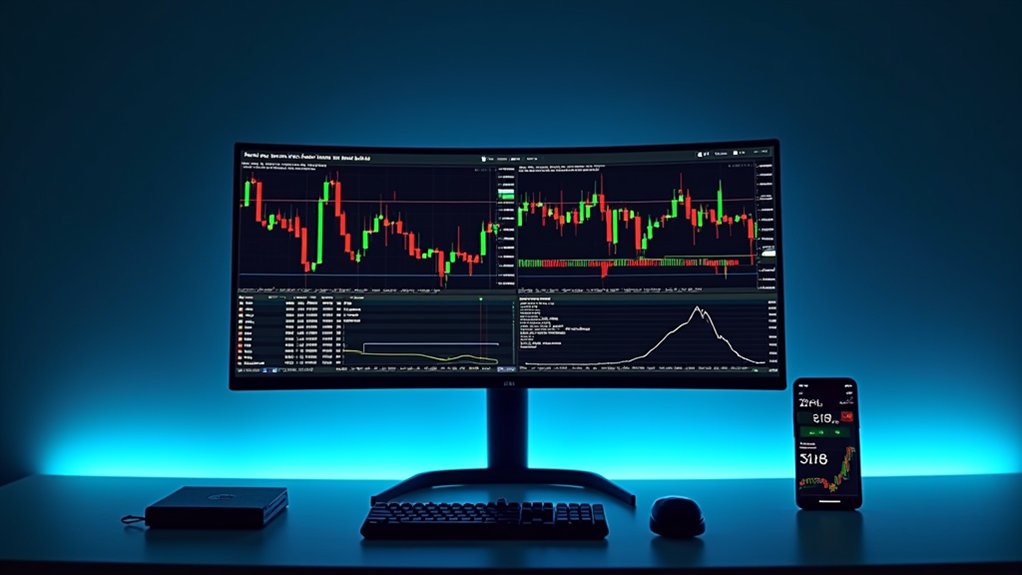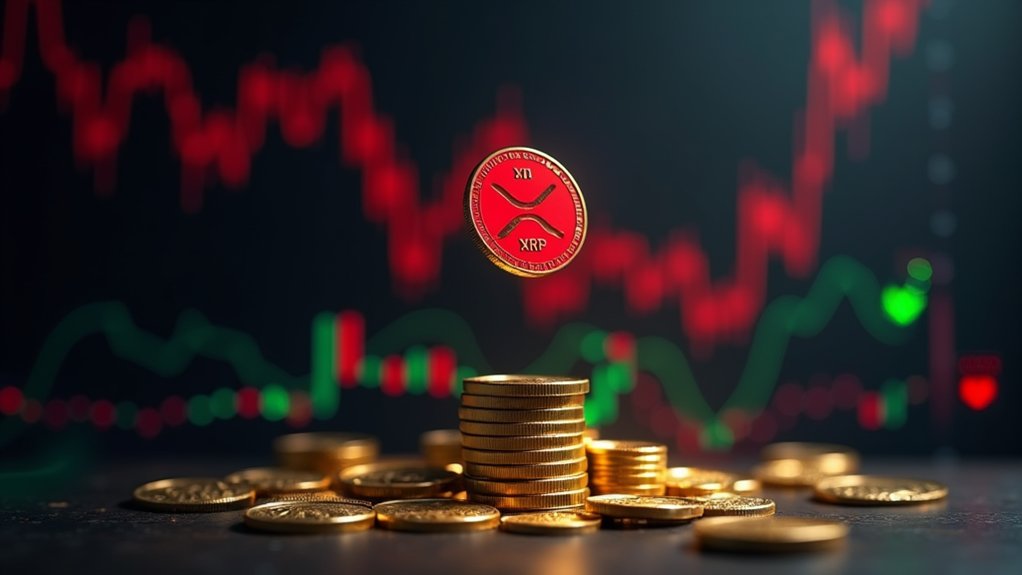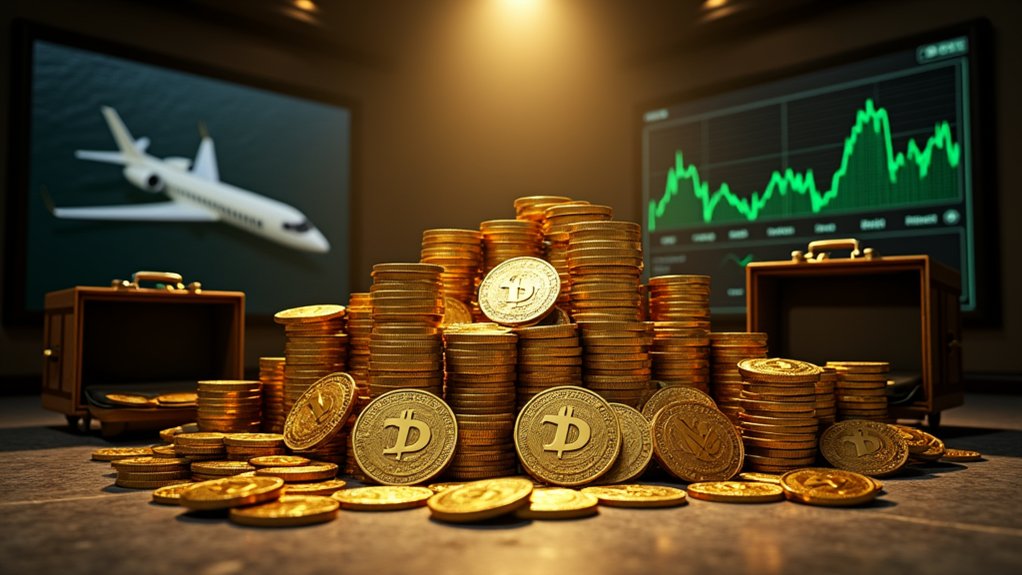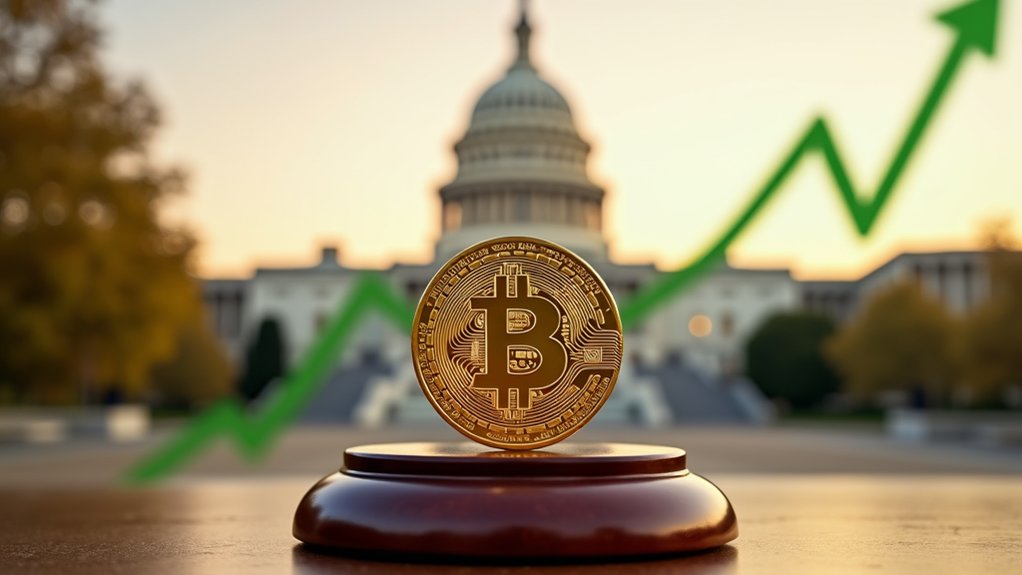DeFi cryptocurrencies can be purchased through various platforms, including centralized exchanges (CEXs) like Coinbase or Binance, which offer fiat on-ramps and regulatory compliance. Alternatively, decentralized exchanges (DEXs) like Uniswap and PancakeSwap facilitate direct, non-custodial trading through automated liquidity pools. Aggregator platforms optimize trading routes across multiple sources, reducing slippage and fees. Blockchain-specific exchanges and cross-chain solutions provide specialized access to particular networks and enable diversification. Further exploration reveals additional security considerations and advanced trading strategies.
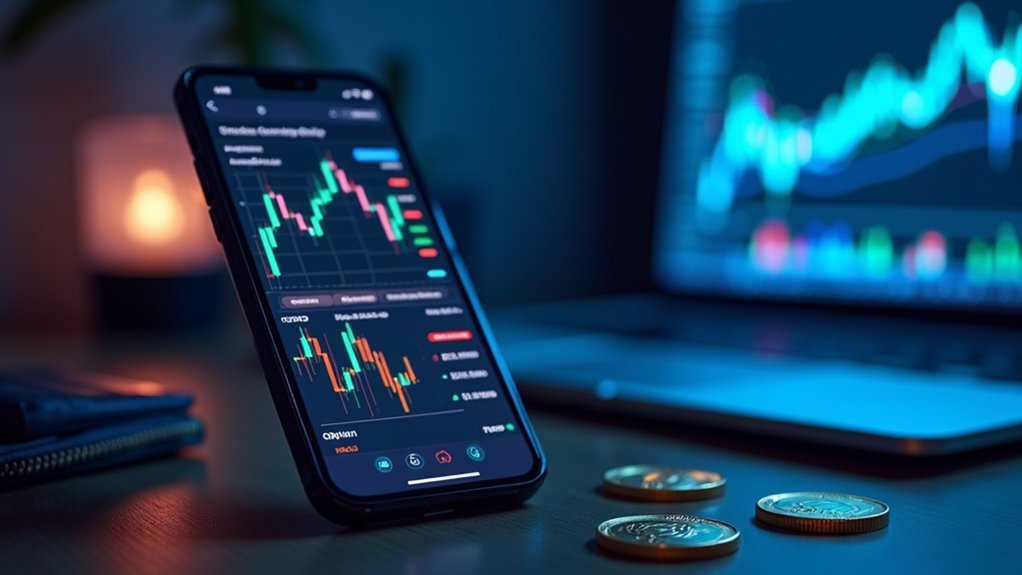
Where and how investors access decentralized finance tokens can greatly impact their trading experience, security posture, and overall portfolio performance. The cryptocurrency marketplace presents several distinct avenues for DeFi token acquisition, each with its own risk profile, fee structure, and operational parameters that merit careful consideration by prospective investors traversing this emerging digital asset class.
Centralized exchanges (CEXs) including Binance, Coinbase, and Crypto.com represent the most accessible entry points for newcomers to DeFi, offering fiat on-ramps, intuitive interfaces, and regulatory compliance that mitigates certain security risks.
These platforms typically list established DeFi tokens including Aave (AAVE), Uniswap (UNI), and PancakeSwap (CAKE), while providing automated tax reporting features that simplify compliance obligations for users operating in regulated jurisdictions, a significant advantage over decentralized alternatives. DeFi applications provide users with enhanced control over their assets and eliminate traditional financial intermediaries through peer-to-peer networks.
For investors seeking greater autonomy and access to broader token selection, decentralized exchanges (DEXs) like Uniswap, PancakeSwap, and SushiSwap facilitate direct, non-custodial trading through automated liquidity pools across multiple blockchains. These DEXs implement smart contracts that automate financial transactions without intermediaries, ensuring transparency and security.
These platforms require wallet connection, typically through MetaMask or Phantom, and expose users to smart contract risk in exchange for permissionless access to emerging DeFi protocols and yield farming opportunities that remain unavailable on centralized platforms. Users can place limit orders to execute trades only when cryptocurrencies reach their desired price points, providing greater control over entry and exit positions.
Aggregator platforms including OKX, 1inch, and Paraswap have emerged as sophisticated intermediaries that optimize trading routes across hundreds of liquidity sources, reducing slippage and gas fees while enhancing cross-chain interoperability.
These services transparently disclose fee structures ranging from 0.1% to 0.3%, conforming to decentralized governance principles while maximizing capital efficiency for traders operating across multiple blockchain networks.
Blockchain-specific exchanges have developed distinct ecosystems, with PancakeSwap dominating Binance Smart Chain, Uniswap leading Ethereum-based trading, and specialized platforms serving Polygon, Solana, and other networks.
These blockchain-native platforms often provide the most efficient trading experience for their respective networks, though cross-chain bridges facilitate asset transfers between disparate ecosystems for investors seeking to diversify across multiple protocols while managing security considerations through hardware wallets and prudent risk assessment practices.
Frequently Asked Questions
What Risks Are Associated With Defi Investments?
DeFi investments entail multiple risk categories, including smart contract vulnerabilities that may contain exploitable code defects despite audits; market volatility risks leading to impermanent loss and liquidation events; regulatory uncertainties that vary across jurisdictions and may result in sudden compliance requirements; and operational hazards including phishing attempts, rug pulls by unscrupulous developers, and insufficient liquidity in smaller protocols.
These factors can notably impact investor capital through both technical failures and market manipulation.
How Do Defi Transaction Fees Compare to Traditional Exchanges?
DeFi transactions typically incur percentage-based fees (approximately 0.3% for DEX trades) plus variable gas costs (averaging $32 on Ethereum).
In contrast, traditional exchanges mainly charge flat fees or fixed spreads (up to 1.5% on centralized exchanges).
This fee structure renders DeFi prohibitively expensive for retail-level microtransactions but potentially advantageous for institutional-scale operations, where lower spreads offset gas expenses.
Despite DeFi's limited throughput of 15-20 transactions per second compared to traditional finance's vastly superior processing capacity.
Are Defi Cryptocurrencies Regulated by Financial Authorities?
DeFi cryptocurrencies exist in a complex regulatory landscape with inconsistent oversight across jurisdictions.
While not uniformly regulated, various financial authorities, including the SEC, CFTC, and FinCEN, assert partial jurisdiction over different aspects of DeFi operations.
The application of existing frameworks, including the Howey Test for securities classification, remains contentious, and regulatory approaches continue to develop as authorities grapple with DeFi's decentralized nature, cross-border consequences, and novel technological characteristics.
Can I Earn Passive Income With Defi Cryptocurrencies?
DeFi cryptocurrencies offer multiple passive income streams, including delegated staking on proof-of-stake networks, yield farming in liquidity pools, lending through protocols like Aave, and liquidity provision on decentralized exchanges.
While these methods can generate significant yields, investors must carefully weigh related risks, including token volatility, smart contract vulnerabilities, impermanent loss, and potential tax consequences.
Utilizing essential tools like secure wallets and analytics platforms, alongside diversification strategies, can help mitigate these challenges.
What Security Measures Should I Take When Using Defi Platforms?
When using DeFi platforms, investors should implement multiple security layers, including hardware wallets for cold storage, multi-factor authentication for account access, and multi-signature requirements for transactions.
Due diligence regarding smart contract audits, protocol transparency, and team credentials remains essential, while diversification across different platforms mitigates concentration risk.
Users should regularly update wallet software, secure seed phrases offline, and consider decentralized insurance protocols to protect against potential exploits or vulnerabilities intrinsic to interconnected DeFi ecosystems.
